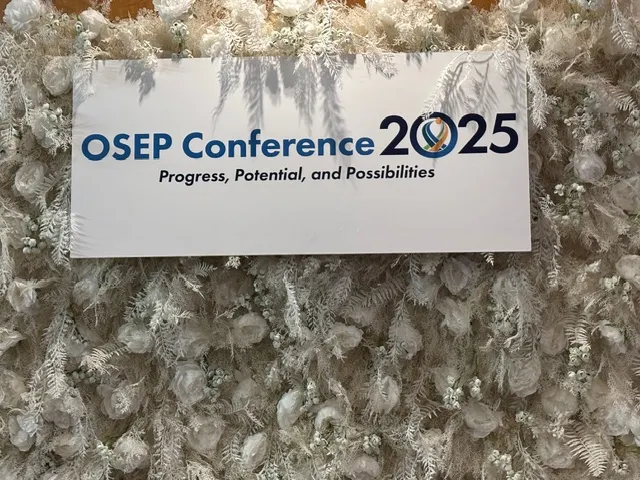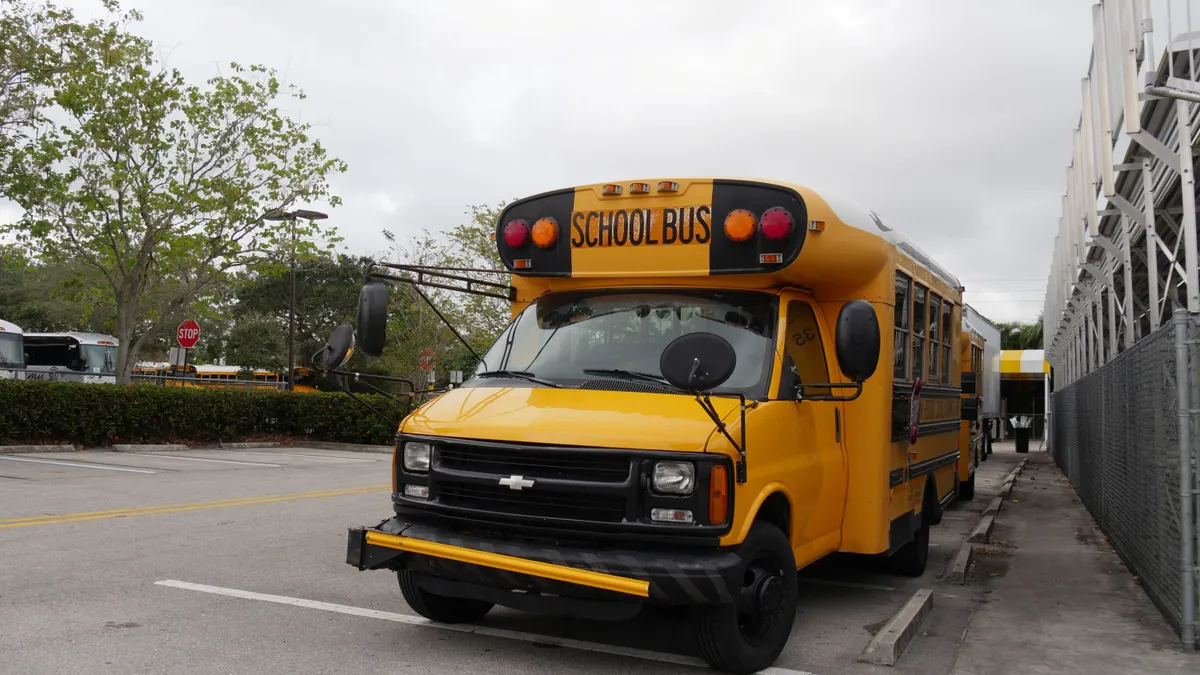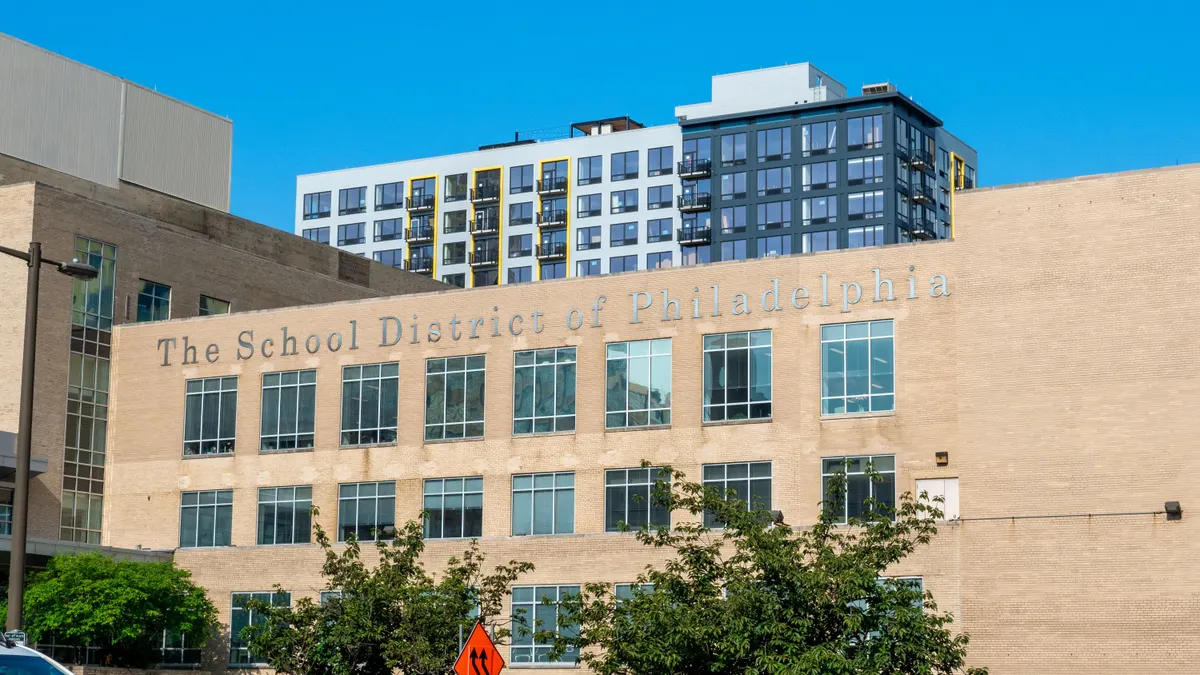The downsizing of the U.S. Department of Education this year has sparked increased debate among parents, special education advocates and policy experts about how the federal government can best serve students with disabilities.
Some critics of the Education Department's Office of Special Education Programs say the office needs to be overhauled so it can be more responsive to parents' concerns and school districts' needs. Others are calling for its complete elimination. OSEP oversees implementation of the Individuals with Disabilities Education Act — the nation's landmark special education law.
"When we talk about students with disabilities, everybody is very, I think, sympathetic and concerned that they get the education they need," said Neal McCluskey, director of the Center for Educational Freedom at the libertarian Cato Institute. "But that doesn't mean we should allow all sorts of negative unintended consequences to continue, nor that we should empower the federal government to set up a Department of Education that should not exist."
Improving the effectiveness of OSEP — which sits within the Education Department's Office of Special Education and Rehabilitative Services — has been discussed for decades among lawmakers, educators, researchers and agency officials seeking to reform the federal role in education.
Those conversations have risen to a fevered pitch this year as President Donald Trump has moved to downsize the federal footprint in education in his quest to eventually shutter the Education Department altogether. Added to that is the current controversy over mass firings at the department while most federal government operations have ground to a halt with Congress at an impasse over fiscal year 2026 spending.
"I think that a better way to help students with disabilities is actually from the bottom up, where we have a system that's based on school choice."

Neal McCluskey
Director of the Center for Educational Freedom at the Cato Institute
U.S. Education Secretary Linda McMahon took to X on Oct. 15 to argue that the government shutdown itself makes the case for eliminating her department. Despite the shutdown, she wrote, "students are still going to school, teachers are getting paid, and schools are operating as normal, confirming that the Education Department is 'unnecessary.'"
After an Oct. 10 mass firing at the Education Department eliminated 121 employees at OSERS and OSEP, leaving only a handful of staffers, advocates of federal special education involvement sent a flurry of letters to Capitol Hill, pleading with lawmakers to retain the offices.
Meanwhile, a federal judge in the past week extended a pause to the Trump administration’s layoff orders for thousands of federal employees during the shutdown. That court order extends a temporary block the same judge put into place on Oct. 15.
The reduction-in-force followed months of historic changes at the Education Department, including the cancellation or pausing of billions of dollars in grants for student mental health supports, summer school programming, and services for students with deafblindness, among other initiatives. It is estimated the entire Education Department now has only half the staff it started the year with.
OSEP cuts raise concerns for some
Within the past month, Democratic House and Senate leaders have penned letters to McMahon asking her to halt the erosion of OSEP staff and services. More than 800 disability rights advocacy groups, education administration organizations and civil rights organizations issued a joint statement calling for the Education Department to reverse course to protect the rights of students with disabilities.
Nearly 60 organizations, including the Council of Parent Attorneys and Advocates and the Council of Administrators of Special Education, are demanding the Senate hold a hearing on the matter. The downsizing of the Education Department will "decimate implementation of key education and disability laws," according to their Oct. 23 letter to leaders of the Senate Health, Education, Labor and Pensions Committee.
But while the OSEP staff reductions have left some in the special education field confused and concerned, the Trump administration is holding tight to its promise to close the Education Department and potentially move special education oversight and programming to another federal agency.
Only Congress can authorize the department's closure — and even if this happens, schools, districts and states still need to adhere to IDEA rules.
Education Department officials have said that any shifting of federal special education oversight would not impact or interfere with services for students with disabilities. McMahon “is fully committed to protecting the federal funding streams that support our nation’s students with disabilities,” Madi Biedermann, deputy assistant secretary for communications, said in an Oct. 21 statement.
The Trump administration wants to remove federal red tape across all education programs and what it calls cumbersome rules in favor of giving states and districts more control over how they spend federal taxpayer money for special education — and K-12 education in general.

IDEA, which turns 50 this month, served about 8.4 million infants, toddlers, children and young adults with disabilities in 2023, the last year for which federal data is available. Although the federal government spends about $15.5 billion on IDEA annually — or about 10% of the total per-student cost — most funding for special education comes from state and local coffers.
States can also implement their own policies regarding special education services. For example, while IDEA requires schools to provide services to qualifying students through age 21, Michigan extends that through age 25.
Special education programs nationwide have been under stress for decades because of federal government underfunding. In 1975, Congress aimed to contribute 40% of the average per-pupil costs of special education but has never come close to reaching that goal.
Adding to the special education pressures are severe special educator shortages. And over the past 10 years, the number of students qualifying for special education services has been rising, adding to the demand for individualized supports.
Helping students with disabilities ‘from the bottom up’?
Historically, Congress has worked in a bipartisan manner to update IDEA — as it did in the last reauthorization of IDEA just over 20 years ago.
Cato's McCluskey said giving states more control over how they spend federal education dollars, including for special education, will spur innovation. Additionally, letting families use taxpayer funds to enroll their child in a school of their choice will drive family empowerment and satisfaction, he said.
"I think that a better way to help students with disabilities is actually from the bottom up, where we have a system that's based on school choice," he said. "If they don't like the service somebody is providing them, they take their money and go to someone who's providing or offering something they prefer."
Students with disabilities whose families choose to transfer them to private schools without support from the public school system lose their IDEA rights since private schools do not have to comply with the law.
Callie Oettinger, a Virginia parent of a child with dyslexia and founder of the Special Education Action website, said OSEP has been too slow to respond to complaints of noncompliance by states. She said it can take years, in some cases, for the office to address and resolve concerns about how IDEA is being implemented within a state or territory.
For example, there can be yearslong gaps between findings of IDEA noncompliance and resolutions for corrective action under the office's differentiated monitoring and support system. This monitoring program can involve reviews of documents, interviews with state and local education staff, feedback from various groups of parents and the public, as well as multiple site visits.
"What was happening under OSEP was better than nothing, but better than nothing is a low bar, right?"

Callie Oettinger
A Virginia parent of a child with dyslexia and founder of the Special Education Action website
Oettinger also said it took about two years from when the Education Department became aware of a perceived cap for special education enrollment at the district level in Texas to when the agency found the state in noncompliance with IDEA.
In Michigan, a 2023 finding from the Education Department's Office for Civil Rights of disability discrimination under Section 504 for pandemic-related lost instruction time for students with disabilities in the state still has not been resolved, according to Marcie Lipsitt, an advocate for students with disabilities who filed the 2021 complaint at the center of the investigation.
In fiscal year 2024, a record 22,687 complaints were filed with OCR, some 37% of which involved alleged disability discrimination.
Additionally, several states have been repeatedly designated as "needs improvement" in meeting special education targets, according to the 2025 IDEA accountability ratings issued by the Education Department. This year's ratings, which were based on performance in fiscal year 2023, considered both compliance with IDEA rules and progress in improving student outcomes such as graduation rates and participation in inclusive classrooms.
When it comes to the federal government addressing special education concerns, noncompliance and ongoing low accountability ratings, Oettinger said, "It's depressing" and sad. "There's a feeling that nothing will ever happen."
Still, she said eliminating federal education oversight is not the solution. In fact, special education services would get worse if states weren't held accountable by the federal government, she said.
"The states have already proven that they're not going to do it on their own," Oettinger says. "What was happening under OSEP was better than nothing, but better than nothing is a low bar, right? Better than nothing is not the standard that we should have for students who have disabilities."
What Oettinger said she wishes is that districts and states would proactively comply with IDEA regulations. "Invest in compliance instead of reactively investing in lawyers, because lawyers are very expensive," she said.
Katy Neas, CEO of nonprofit disability rights group The Arc and a deputy assistant secretary of OSERS in the Biden administration, said parents have historically pushed for improvements to IDEA. When something goes wrong, Neas said, it's typically because roles or responsibilities were not clearly understood.
"That's one of the most important things that the Department of Education does, is help clarify roles and responsibilities of all the key players so that children can be successful," Neas said during an Oct. 17 media call hosted by the National Education Association about the Trump administration changes to special education.
NEA President Becky Pringle, speaking on the same call, said NEA wants the Trump administration to fully staff the Education Department, including OSERS and OSEP, to meet the needs of students, families and educators.
"Every student deserves access to services that they need to learn and grow and succeed," Pringle said. "Anything less is an abandonment of our children and of every parent who loves and supports them.”





















